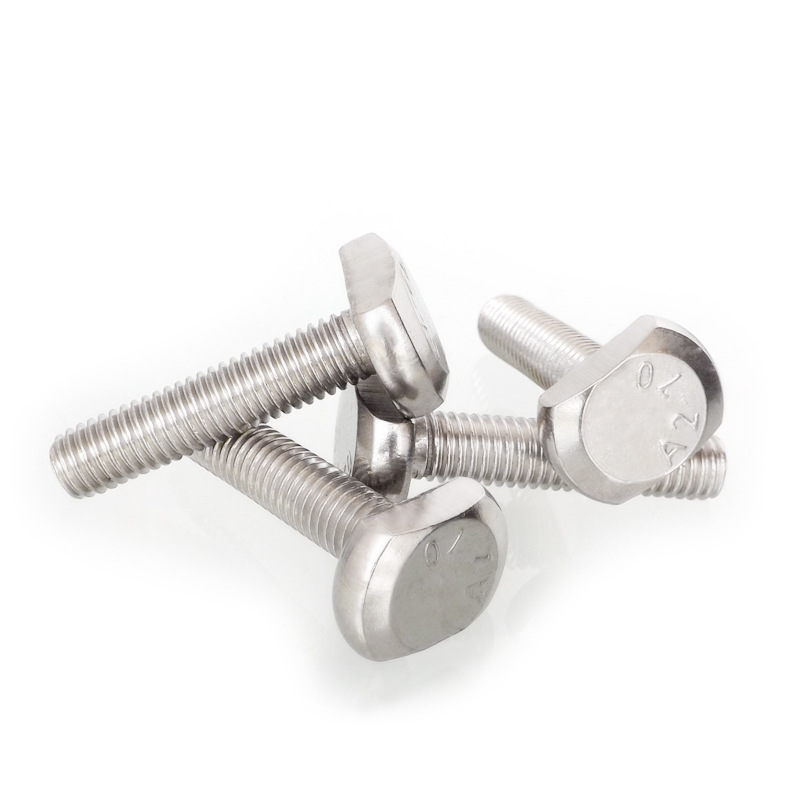

Innovative Design and Applications of Stud Bolt Fastening Systems in Machinery
Nov . 06, 2024 18:55 Back to list
Innovative Design and Applications of Stud Bolt Fastening Systems in Machinery
The Evolution of Stud Bolt Machines A Key Component in Modern Engineering
In the realm of engineering and manufacturing, stud bolt machines play a crucial role in the production of high-strength fasteners. These machines have evolved significantly over the years, adapting to meet the demands of various industries, including construction, automotive, and aerospace. This article delves into the functionality, types, and advancements of stud bolt machines, highlighting their importance in modern manufacturing processes.
What are Stud Bolts?
Stud bolts are mechanical fasteners characterized by their elongated shaft, typically threaded on both ends. They are designed to connect two components together, providing a reliable and robust fastening solution. Unlike standard bolts, which have a head on one end, stud bolts are symmetrical, allowing for versatility in applications. They often withstand high tensile loads and are critical in structures where safety and durability are paramount.
The Functionality of Stud Bolt Machines
Stud bolt machines are specialized equipment used for the manufacturing of stud bolts. Their primary function involves the cutting, shaping, and threading of metal rods to produce high-quality fasteners. The process usually begins with a raw metal rod, which is heated and then subjected to various operations, including forming, threading, and finishing.
The machines are equipped with advanced technology that ensures precision and consistent quality. For instance, many modern stud bolt machines utilize Computer Numerical Control (CNC) systems, allowing for automated production processes that minimize human error. This level of automation not only enhances productivity but also significantly reduces manufacturing costs over time.
Types of Stud Bolt Machines
Several types of stud bolt machines are available, each designed for specific manufacturing needs. The most common types include
stud bolt machine

1. Thread Rolling Machines These machines use a rolling process to create threads on the stud bolt. By deforming the material rather than cutting it, thread rolling enhances the strength of the threads and reduces waste.
2. Machining Centers These versatile machines can perform multiple operations, including drilling, milling, and threading, on a single platform. This reduces the need for multiple machines and streamlines the production process.
3. Forging Machines Used for producing high-strength stud bolts, forging machines apply pressure to heated metal to mold it into the desired shape. This process often results in superior mechanical properties compared to conventional machining methods.
Advancements in Technology
The stud bolt machine industry has seen remarkable advancements in technology over the past few decades. Innovations such as automation, real-time monitoring, and the use of artificial intelligence have transformed traditional manufacturing processes.
For example, predictive maintenance technology can analyze machine performance data to forecast potential issues before they lead to breakdowns, thereby minimizing downtime. Additionally, improved software systems allow for enhanced design simulations, enabling engineers to experiment with different configurations and materials before physical production begins.
Moreover, environmentally conscious manufacturing practices are increasingly being adopted within the industry. Many stud bolt machines now operate with energy-efficient systems and utilize sustainable materials, aligning with global efforts to reduce carbon footprints.
Conclusion
Stud bolt machines represent a cornerstone of modern manufacturing, facilitating the production of essential components in various industries. As technology continues to advance, these machines are becoming more integrated, efficient, and sustainable. The innovations in this field not only enhance the quality and reliability of stud bolts but also contribute to the overall progress of the engineering and manufacturing sectors. With the ever-growing demand for high-strength fasteners, the evolution of stud bolt machines will undoubtedly continue to play a vital role in shaping the future of manufacturing.
Latest news
-
Premium Fasteners Manufacturer | AI-Driven Solutions
NewsAug.01,2025
-
Hot Dip Galvanized Bolts - Hebei Longze | High Strength, Corrosion Resistance
NewsAug.01,2025
-
High-Strength Hot Dip Galvanized Bolts - LongZe | Corrosion Resistance, Custom Sizes
NewsAug.01,2025
-
Best Self Tapping Screws for Drywall - Fast & Secure Installation
NewsJul.31,2025
-
High-Strength Hot Dip Galvanized Bolts-Hebei Longze|Corrosion Resistance&Customization
NewsJul.31,2025
-
Hot Dip Galvanized Bolts-Hebei Longze Metal Products|Corrosion Resistance&High Strength
NewsJul.31,2025

